Discover Awake At Night
Awake At Night

Awake At Night
Author: United Nations, Melissa Fleming
Subscribed: 513Played: 11,527Subscribe
Share
© United Nations
Description
What does it take to be a United Nations worker in some of the world's most complex and dangerous places? How are UN humanitarians, human rights advocates, prosecutors, development experts, climate leaders and peacekeepers improving our world?
Stationed in all reaches of the world and witness to suffering and atrocities, how are they helping people and coping themselves?
To find out, Melissa Fleming meets them.
Here you will discover extraordinary personal stories from people who devote their lives to helping others.
Here you will discover extraordinary personal stories from people who devote their lives to helping others.
131 Episodes
Reverse
Filippo Grandi has devoted more than three decades to easing the suffering of refugees: "My pride after all these years is that the center of this effort of my lifetime has been on people, and especially on the people that suffer most in the world, including refugees." Now, shortly before his term comes to an end, and as more than 117 million people worldwide remain forcibly displaced, the long-serving UN High Commissioner for Refugees is welcoming a rare moment of hope for one of the world's largest refugee populations. "Home means your house, your family, your friends, your work, your school, and it is fantastic when, like in Syria […] people can go back to their homes. This is what most refugees want." UNHCR, the UN Refugee Agency, not only helps those who flee war and persecution, but also those who choose to go home when peace returns. Appearing on Awake at Night for a second time, Filippo Grandi reflects on the dangers of divisive politics, the human cost of painful budget and staff cuts, and shares his hopes and dreams for life after the UN.
Every day at noon, Stéphane Dujarric steps on stage to field questions about the United Nations from international journalists. As spokesman for the Secretary-General, he must be ready to talk on all aspects of the organization's work at a time of unprecedented financial and political strain. "There is no way we can move forward in this world without multilateralism, without an organization like this one. It's like a plant, right? It needs to be watered. We can't let it wither away." An alumnus of the United Nations International School, Stéphane Dujarric was immersed in the world of international diplomacy from an early age. In this episode, he shares why his own family owes everything to the actions of two courageous diplomats, and reflects on how being a procrastinator can be a superpower when faced with the challenge of the 24-hour news cycle.
A life-long humanitarian, Matthias Schmale has borne witness to a number of seismic moments in world history. Currently United Nations Resident and Humanitarian Coordinator in Ukraine, he is overseeing efforts to help Ukrainians prepare for a fourth winter at war. "The longer this lasts, the more the resilience will go down, the more the psychological damage will take hold [...] There are nights where I lie in bed thinking, why can't this nightmare for civilians end?" Ukrainians have endured four years of hellish conflict that continues to devastate civilian lives and infrastructure, leaving 36 percent of the population in need of aid. In this episode, Matthias Schmale looks back on a long career of humanitarian service, reflects on the deep scars of war and explains why daily life in Kyiv can be both heaven and hell.
How does one out of five sisters from rural Nigeria grow up to be UN Deputy Secretary-General? Blessed with tenacity, determination and grit, Amina Mohammed has always been driven to improve the lives of her fellow human beings and our planet. Rising to the top of the United Nations, her vision has helped shape the world's blueprint for a brighter future. "One step at a time, this whole life is about a journey. Make each step count. It is about taking people with you. Don't do this alone. It's too heavy. You need people to cry with you, laugh with you." Amina Mohammed is known for making the impossible possible, and has relied on a strong moral compass and the strength of her convictions across a long and varied career of service. In this episode, the UN Deputy Secretary-General and mother-of-six and grandmother to five reflects on what the Sustainable Development Goals have meant in her own life and shares what chocolate and traditional clothes have to do with strong leadership. "Muslims in Nigeria say, well, there you go, this is a woman working in the international scene, and she's not shy or embarrassed to wear her culture or her religion and to stand proud with it." Transcript and photos: www.un.org/en/awake-at-night/s…ake-each-step-count
Whenever a new cancer patient entered her office in the U.S., Dr. May Abdel-Wahab knew she could help by palliating their pain and working towards a cure. Now, as Director of the Division of Human Health at the International Atomic Energy Agency (IAEA), she delivers hope to patients in places where treatment has until now been unavailable. "So much can be done to treat cancer, but too many people in the developing world have no access to care. It's unthinkable. It's unfair." With global cancer cases expected to mount in the next two decades, the IAEA is equipping low- and middle income countries with training and radiotherapy to help more people survive the disease. In this episode, Dr. May Abdel-Wahab reflects on the outlook for cancer outcomes around the world, the challenges of anchoring new treatment centres, and shares how her upbringing taught her to see the world as one human family. "Every person that walks through the door is a new person, a new friend … if they leave the exam room with a smile and feeling hope, then you've done a good job." Related content and photos: https://www.un.org/en/awake-at-night/s11-may-abdel-wahab-a-ray-of-hope-for-cancer-patients
Every day, Peter Hawkins wakes up filled with determination to make a difference. As the United Nations Children's Fund (UNICEF) Representative in Yemen, he puts that boundless energy into helping young people survive one of the world's most intractable humanitarian crises. "Despite serving in some of the most challenging and difficult places, I've been lucky," he says. "I've loved my life. I have no regrets. Every day I wake up, I feel there's something I can do. There's things I enjoy. So nothing keeps me awake, everything keeps me going during the day." After a decade of conflict and collapse, a new generation of Yemenis are yearning for a better tomorrow: "So the children sit there in these classrooms with no walls, no floors, no desks, and learn, and they're proud about what they learn. And they come to me and say, 'Look, don't worry, we will continue to learn. But if you can give us desks, if you can fill up the walls and you can give us a floor and a blackboard, it will be even better.'" In this episode, Peter Hawkins reflects on the striking resilience of the people he serves, and shares how his upbringing in Ethiopia and service in Iraq taught him to never give up working for change. For him, the biggest challenge today is not so much about raising awareness, but about action. "It is so important to understand how one side of the world is so lucky and the other side of the world is still desperately poor, and how we bring those two together." https://www.un.org/en/awake-at-night/s11-peter-hawkins-nothing-keeps-me-awake-everything-keeps-me-going
Vivian van de Perre's calling is to help nations transition from conflict to peace. Now the deputy head of peacekeeping in the Democratic Republic of the Congo (DRC), she leads a life-saving operation in the rebel-held city of Goma. "It's tragic and it's unimaginable, but at the same time, people live their lives and they do the best they can, and they remain generous and warm, despite the circumstances that they live in. You go to these places and you see the worst and you see the best, and it's all in one package, and it is just something that really, really touches you. It's not like a regular job." A recent peace accord has raised hopes of an end to the violence that has plagued eastern DRC for the past three decades. In this episode, recorded before the peace agreement, Vivian van de Perre reflects on the impact of funding cuts on active war zones, on peacekeeping as a delicate balancing act, and shares why she falls for every place she serves. "[Losing colleagues is] heartbreaking, and you can't think about it all day long, because it will be so demoralizing you have to keep going. Nobody expects to not come back." https://www.un.org/en/awake-at-night/s11-vivian-van-de-perre-working-for-peace-in-the-dr-congo
Yacoub El Hillo spent more than thirty years serving refugees and displaced people in some of the world's worst conflict zones. But when cataclysmic war erupted in his hometown of Khartoum, Sudan, the Regional Director for Africa at the United Nations Development Coordination Office (DCO) had to help his own family flee the violence. "I don't think there's any home in Khartoum that was spared … the assumption is that everything is gone." Having served in more than 16 duty stations, from Liberia to Syria, Somalia and Afghanistan, Yacoub El Hillo has rarely seen any conflict as devastating as the one currently decimating Sudan. In this episode, he reflects on the scale of the human suffering there, looks back on a rich and varied career with the UN, and shares why all nations deserve a chance to strive for a brighter future. "[Serving refugees] is not a job, it's a mission, and there's always fire in the belly that keeps you wanting to do more, but also never giving up. This is the UNHCR I joined." https://www.un.org/en/awake-at-night/s11-yacoub-el-hillo-when-war-comes-home
With her background in human rights law, Georgette Gagnon was once said to represent the conscience of war. Currently serving as the Secretary-General's Deputy Special Representative for Afghanistan, she has been devastated by the sweeping loss of rights for women and girls there. "You used to see across the country hundreds of girls going to school... Now, of course, you don't see that, and it's heartbreaking. It's such a huge loss for the entire society," she says. Afghanistan has one of the highest numbers of people in need of humanitarian support, and drastic cuts to humanitarian assistance affect access to critical care for millions. In this episode, Georgette Gagnon shares her hopes and fears for a country close to her heart, and reflects on a career serving in some of the world's toughest places, from Syria to Sudan and Libya. "If you're working on human rights, that's your job. Having a conscience is about serving humanity. You know, what am I doing every day for human beings, particularly those who are in, you know, a much more challenging situation, we need to support their courage, their resilience, their need to survive...and their rights."
As a young white activist in South Africa, Nicholas Haysom risked detention to oppose the apartheid regime, later working alongside Nelson Mandela. Now Special Representative of the Secretary-General for South Sudan and Head of the United Nations Mission there, he is still striving tirelessly in pursuit of peace and human rights. "The lesson of [Nelson] Mandela is not just being a nice person, it's perseverance in your ideals. It'll change the world." After a long and varied career, Nicholas (Fink) Haysom is supporting recovery and resilience in South Sudan, the UN's newest member state. In this episode, he reflects on helping the world's youngest nation build a better future, on why thorny negotiations are always necessary to move on from any civil war, and on why lasting peace should never be taken for granted. https://www.un.org/en/awake-at-night/s11-nicholas-haysom-do-not-take-democracy-for-granted
Rather than follow in the footsteps of his late father, a Nobel-prize winning writer, Gonzalo Vargas Llosa opted instead to serve humanity. Now the UN High Commissioner for Refugees' Representative to Syria, he just witnessed a historic end to 14 years of conflict and crisis. "There were these long, long lines of cars of Syrian refugees coming back from Lebanon. So many of them stopped the car the moment that they entered Syria, they got out of the car, they kissed the ground … saying we are so happy to be back in this new Syria." The fall of the Assad regime has brought fresh hope for millions of displaced Syrians. Yet with a lack of housing, services and jobs still preventing most from returning, the UN is calling for action to support returnees. In this episode, Gonzalo Vargas Llosa looks back on a career full of seismic turning points, and reflects on the painful sacrifices of a life spent in service. https://www.un.org/en/awake-at-night/s11-gonzalo-vargas-llosa-what-next-for-syria-refugees
Our troubled world can be a source of great joy, and great suffering. United Nations staff witness both, day in day out, as they serve humanity in some of the toughest places on earth. They do so at considerable risk, and with shrinking resources. Yet despite all the challenges, dedicated UN staff around the world continue to find the strength to keep making a difference to millions of lives. Join UN chief communicator Melissa Fleming as she gets to know the extraordinary people dedicating their lives to service. Coming soon from the United Nations, Season 11 of Awake at Night.
Having grown up in war-torn rural Zimbabwe, Nyaradzayi Gumbonzvanda overcame extreme hardship to pursue a career at the highest levels of the United Nations. Now UN Assistant Secretary-General, and one of two deputy executive directors of UN Women, she wants little girls everywhere to aspire to the same heights. "Peace is a prerequisite. It's so critical for development… for unleashing the potential of the little girls. Peace is so important for enabling mothers, widows to give the best they can." UN Women works to uphold women's human rights and ensure that every woman and girl lives up to her full potential. In this episode, Nyaradzayi Gumbonzvanda reflects on a childhood touched by war, poverty and disease, on a lifelong love of learning, and on how a recent accident gave her a new perspective on inequality. "Never let your circumstances determine your future. They are just a stepping stone to who you truly are."
Catherine Russell never forgets the children she meets. As Executive Director of UNICEF, she bears witness to the stories of tens of millions of children and young people suffering around the world, and shares causes for optimism and hope wherever she finds it. "Children just want to be children. No matter what, the bleakest situation, the most terrible things, they still want to play right? They want to find some joy. They want to just be kids, and I think that's what we have to all work to protect." 2024 was one of the worst years on record for children in conflict, a devastating statistic that the United Nations is refusing to accept as a deadly new normal. In this episode*, Catherine Russell reflects on the impacts of childhood trauma, the limits of human resilience, and looks back on a childhood spent trick-or-treating for UNICEF. * Episode recorded end of 2024
Carmen Corbin dreamt of serving with the United Nations from an early age. Now head of transnational organized crime, illicit trafficking and terrorism prevention programs at the United Nations Office on Drugs and Crime (UNODC) in East Africa, she is dedicated to protecting children from shocking online exploitation. "We won't know who is real and who is not real. We can't keep up. All of us, in some way, shape or form, will potentially suffer from the fact that we won't be able to trust anyone or trust anybody that we meet, because you're never sure if that person is truly who they say they are." The UNODC supports law enforcement efforts in tackling all transnational organized crime and counter terrorism, including cybercrime. In this episode, Carmen Corbin reflects on the challenges of overseeing a wide portfolio, on the psychological strain of prosecuting the worst kinds of cybercrimes and shares her advice for a successful international career.
Celeste Saulo has always been fascinated by the weather. Now Secretary-General of the World Meteorological Organization (WMO), she is seeing climate breakdown warp global weather systems beyond recognition, with devastating impacts on countless lives and livelihoods. "We can see how many people are suffering…We can see that people are running out of food, are running out of water, and the real narrative is that this will affect everyone sooner or later." The United Nations Secretary General has issued a red alert for the planet after a full decade of record-breaking heat driven by human activity. In this episode, Celeste Saulo reflects on our shared responsibility to future generations, on an emotional meeting with the Pope, and on why she can never give up hope. "If you work with youth, you need to have hope, because for me, it's not fair not having hope… We need to work along the lines we believe are better opportunities for them, and we need to engage them, and I would say, to follow them."
Having overcome a childhood marked by violence, abuse and neglect, Benjamin Perks has always drawn strength from an innate sense of optimism. Now Head of Campaigns and Advocacy at UNICEF, the United Nations Children's Fund, he helps protect young people in similar situations all over the world. "I think it was very clear that we were in a bad spot, though, being dealt a bad hand, but I was somehow optimistic that things would be better." Having recently authored a book about his experiences, Trauma Proof, Benjamin Perks reflects in this episode on a lifetime campaigning for all children to be safe, seen, and soothed, and on how an encounter with a special teacher put his life back on track. "When I held my son in my arms, I knew that what had happened to me was now unimaginable to myself… that made me ask the question, if I can heal from it, if I can recover and not transmit it to my child, can we do this for the whole of humanity?"
UN official Laura Dolci was feeding her baby son when she heard the devastating news that her husband Jean-Sélim Kanaan had been killed in a suicide bomb attack on the UN Headquarters in Baghdad, Iraq. It was August 19, 2003: the darkest day in UN history, and the darkest day in her life. Just days before, she recalled, "he kissed us goodbye, and I remember telling him in my joking way: 'Be sure you come back.'" Working through tremendous trauma, Laura Dolci became a fierce advocate for terrorism victims – calling for recognition and support to those affected by what she calls a senseless crime. At the United Nations, she is now a distinguished leader in international human rights. In this episode, Laura reflects on the meaning of the term resilience, on her late husband's legacy, and on her hopes for their son. "One of the first things I had to tell [my son] was, 'Your father was killed.' … The weight of that word in a family is big. How do you make sure that the next generation can still believe in justice, in mediation, in respect, in resolving tensions and conflicts?"
As a doctor, Dr. Hans Kluge helped save lives in some of the toughest places on Earth. Now the World Health Organization (WHO) Regional Director for Europe, he is working to improve the health of hundreds of millions of people - in a region stretching from Vladivostok to Lisbon. "We cannot have health without peace. Peace is the most urgent medicine." Stepping into his European role just as a global pandemic swept the earth, Dr. Kluge never dreamed that his previous experience in crisis-hit sub-Saharan Africa would prove so useful. In this episode, Dr. Kluge reflects on lessons learned during COVID, the mental health crisis, and on some surprising methods to build trust with remote communities. "My dream and my vision is that we have a culture of health. It means that, independent of your financial means, your sexual orientation, whether you are documented or an undocumented migrant, that you are empowered to live a healthy life, and this means that we have to have universal health coverage."
Arif Husain has spent the past decade raising his voice on behalf of those struggling to get enough to eat. Now Chief Economist at the World Food Programme (WFP), he is calling for the world to put a stop to mass hunger. "We want people to scream at the top of their lungs saying enough is enough […] We as humanity will not tolerate this, regardless of what and where it is happening. It's just not right if you are hurting women, children, innocent people." There is no shortage of food in the world, yet the WFP says the number of people going hungry has more than doubled in the past five years. In this episode, Arif Husain reflects on how the deadly trio of conflict, climate change and economics conspire to breed hunger, and offers listeners hope from a surprising source. "I tell my colleagues … as humanitarians, our jobs are bigger than us… We don't do our job, we lose people. So every time you feel like you don't have to do 100 plus percent, just think about that."


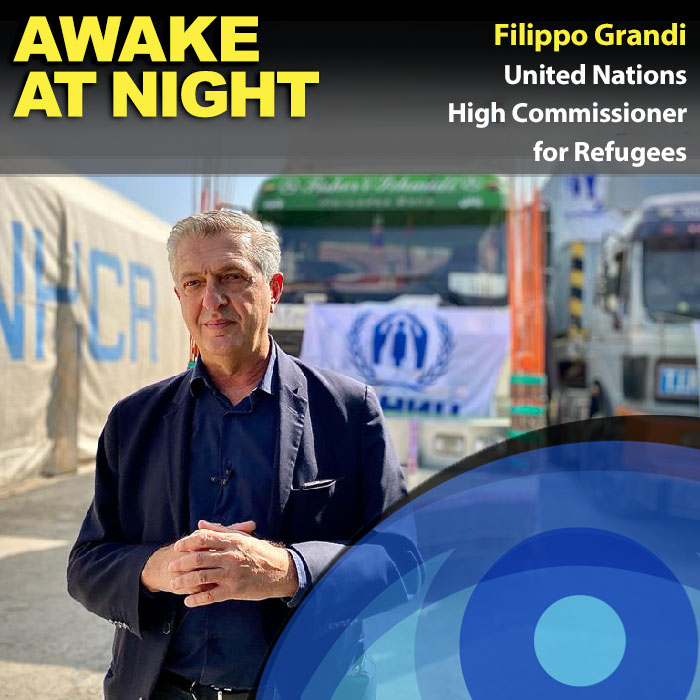
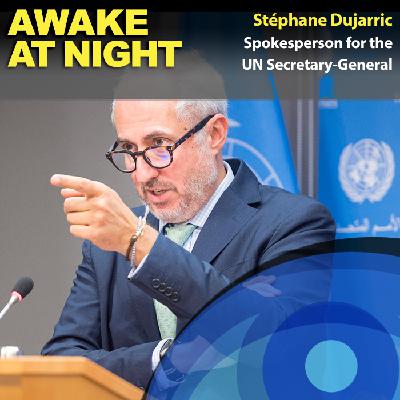

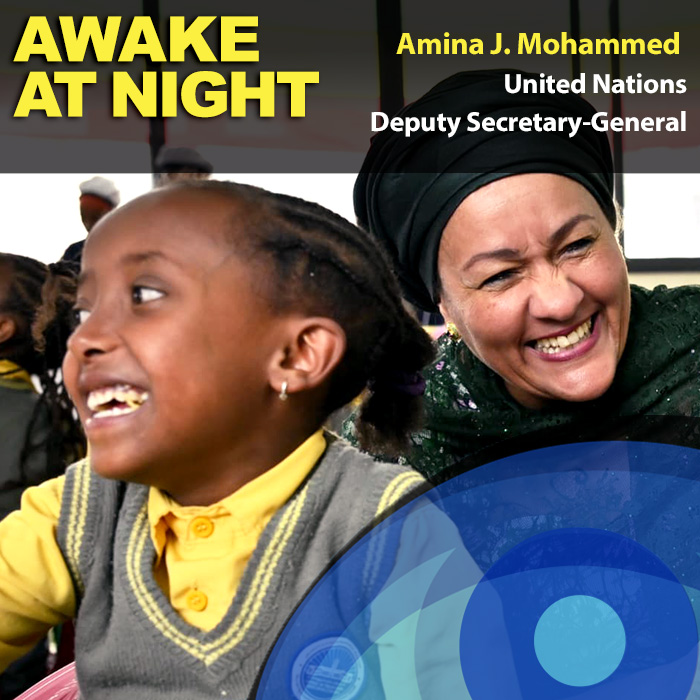
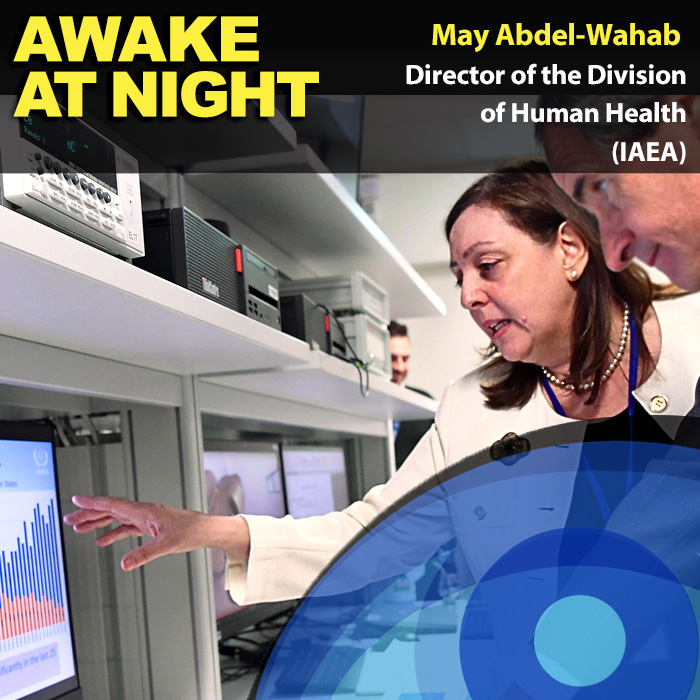
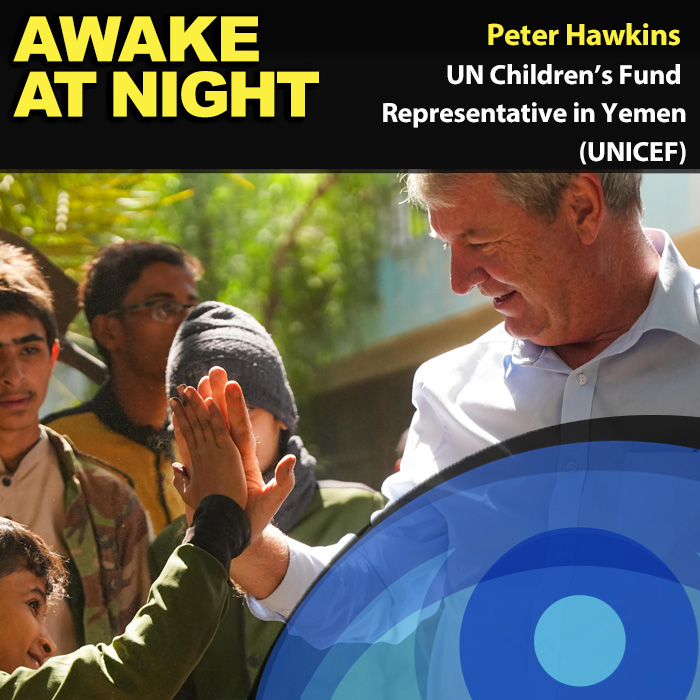
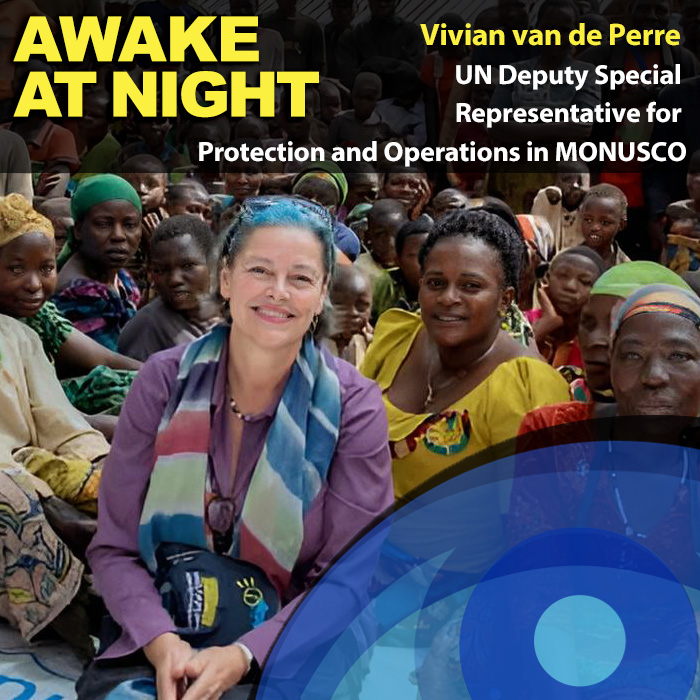
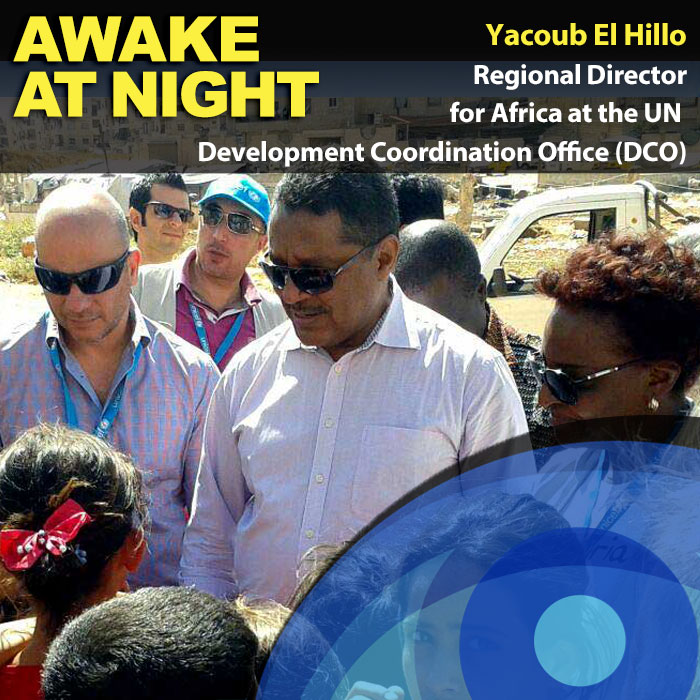
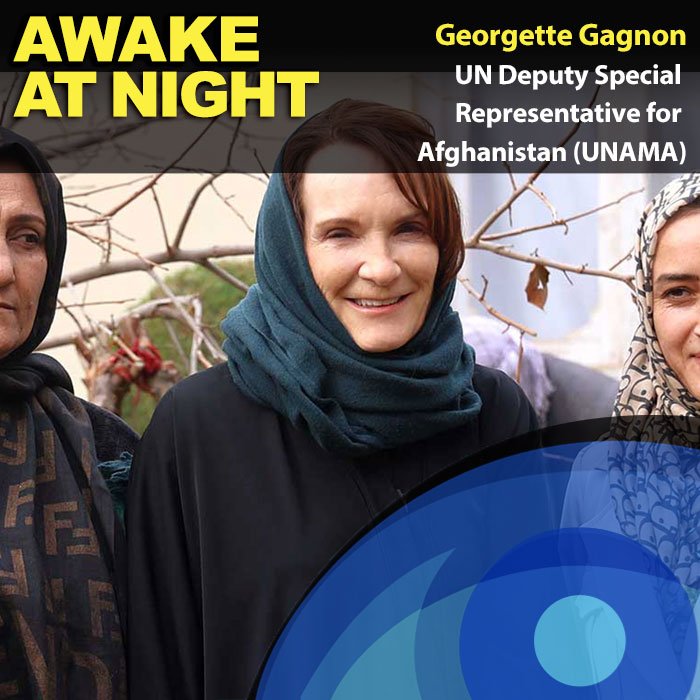
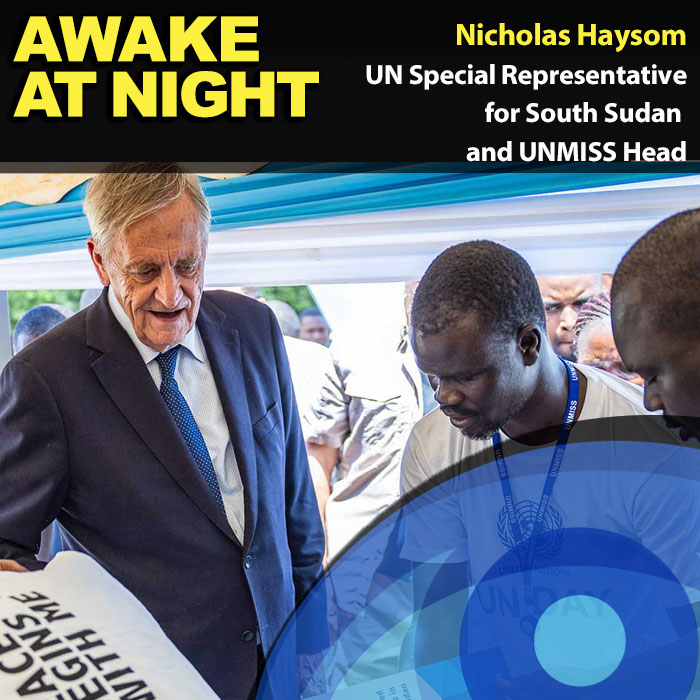
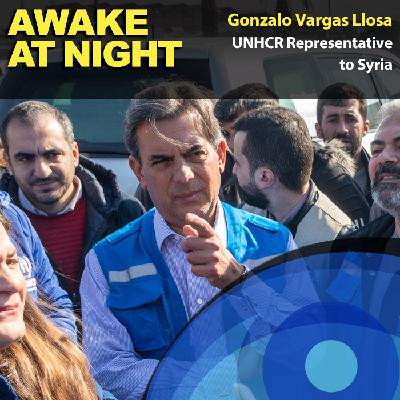
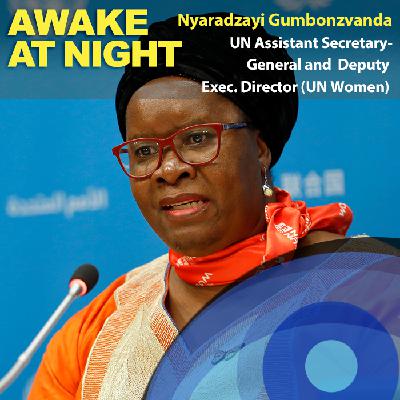
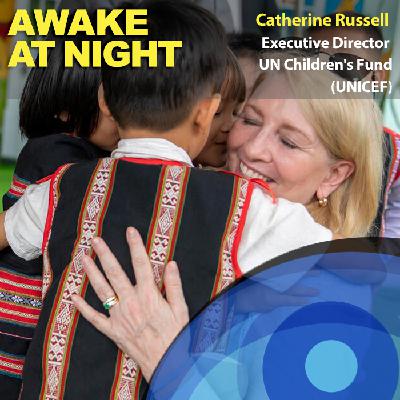
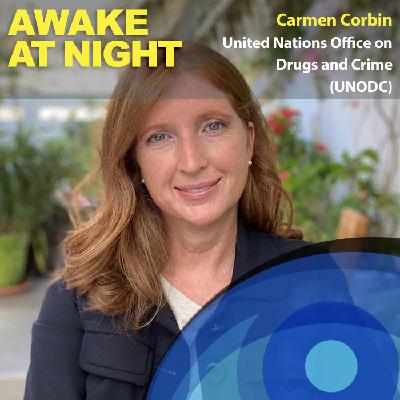
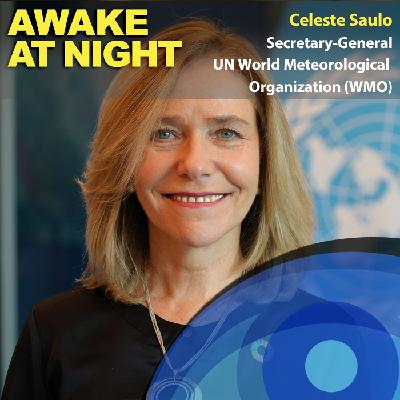
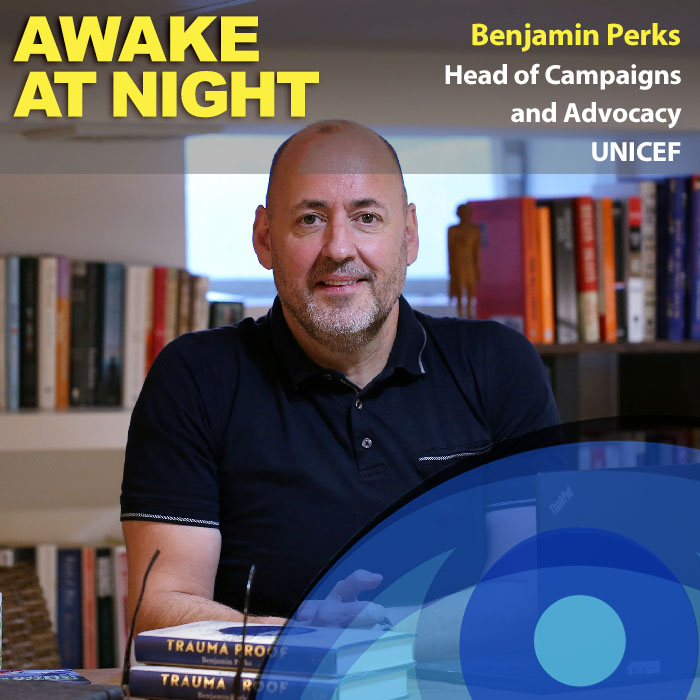
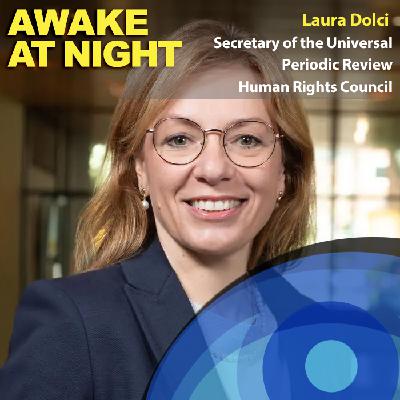
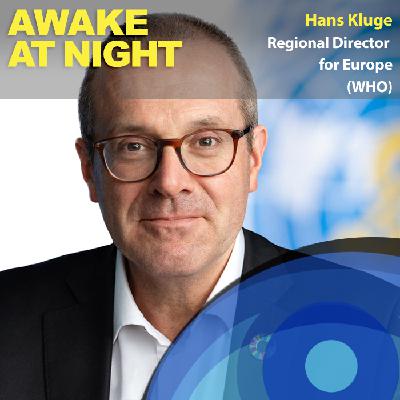
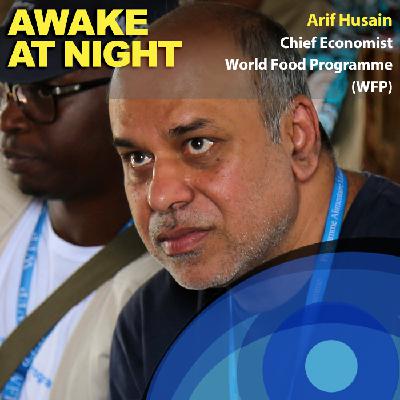



Thank you Boris for standing up for asylum seekers. you have paid a heavy price. so sorry for all you had to go through.
Fatima, your words have touched me. Best wishes from Brazil.
Really interesting. God bless you Vicent.
it was very informative and instructive story for me as UNHCR member. Bonne courage!